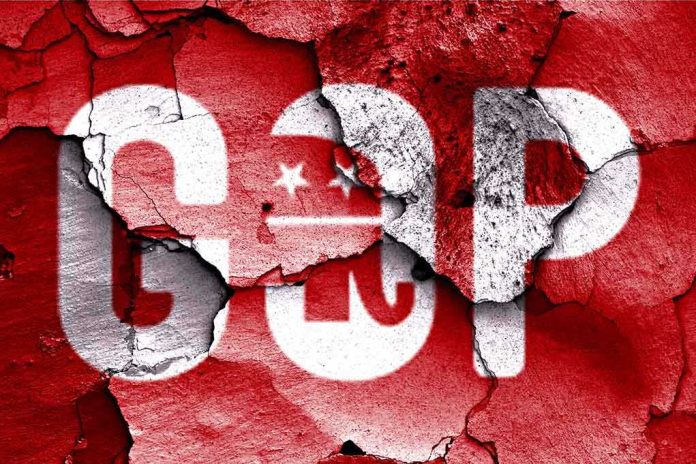
When the president openly accuses his own party of bending to “political correctness,” the ripple effects reveal far more than a failed bill—they expose the raw fault lines of power, loyalty, and identity in American politics today.
Story Snapshot
- Donald Trump denounces Indiana Republicans for abandoning a redistricting push.
- Two state senators and the sitting GOP governor are singled out for criticism.
- The controversy spotlights deeper rifts inside the Republican Party over political strategy and principles.
- The episode raises pressing questions about the future of redistricting and party leadership in Indiana and beyond.
Trump’s Rebuke: Redistricting and Party Loyalty Collide in Indiana
Donald Trump’s public condemnation of Indiana Republicans for dropping a redistricting effort did more than express disappointment. It thrust the state’s GOP leadership into the national spotlight, fueling debates about the direction of the party and the role of so-called “political correctness.” By targeting two state senators and the Republican governor on Truth Social, Trump made the issue personal and immediate, sending a clear signal to party members nationwide: toe the line, or risk public censure.
The rift is not just about political maps. Redistricting has become a symbolic battlefield in American politics, where control over district lines can shape legislative power for a decade or more. For Trump and his supporters, abandoning a redistricting effort is tantamount to surrendering ground in a larger ideological war. The ex-president’s intervention highlights his continued influence over the party base, as well as his willingness to call out fellow Republicans he perceives as insufficiently committed to conservative priorities.
What’s at Stake: More Than Just District Lines
Redistricting in Indiana, as elsewhere, is a high-stakes game. The process determines which party holds the advantage in state and federal elections. In recent years, accusations of gerrymandering—manipulating district boundaries for partisan gain—have inflamed both sides of the aisle. Yet, in Indiana, the latest controversy is less about which party controls the process and more about how internal party disagreements play out in public.
Trump’s criticism of “politically correct” Republicans taps into a broader conservative anxiety: the fear that adherence to mainstream cultural norms, or efforts to avoid public controversy, weakens the party’s ability to pursue its goals unapologetically. For some, resistance to redistricting reforms signals a retreat; for others, it represents a pragmatic response to changing political realities or demographic shifts. The resulting tension underscores the challenge facing Republican leaders who must balance loyalty to the president with the pressures of governance and public opinion.
GOP Leadership Under Fire: The Implications for Indiana and Beyond
The willingness of Trump to directly challenge state-level officials from his own party is not new, but the Indiana episode is notable for its timing and tone. As the 2026 midterm elections approach, the Republican Party confronts an identity crisis: should it prioritize unity and discipline, or embrace a diversity of strategies and voices? Trump’s intervention suggests he favors the, even at the cost of internal conflict.
For Indiana Republicans, the fallout is immediate. The senators and governor named by Trump now face pressure from party activists and voters who remain loyal to Trump. At the same time, they must navigate legal and practical constraints that complicate any redistricting effort. The episode serves as a warning to other GOP officials: policy decisions, especially those touching on electoral power, will be closely watched and publicly judged by the party’s most influential voices.
The Future of Redistricting and Republican Strategy
The Indiana redistricting dispute may be a local skirmish, but it echoes national debates about the future of American democracy. As states grapple with the consequences of recent Supreme Court decisions and shifting population patterns, the rules of the political game are up for grabs. Trump’s insistence on ideological purity and combative rhetoric ensures that such debates remain contentious and highly visible.
Looking ahead, Indiana’s experience could serve as a case study for other states facing similar dilemmas. The choices made by party leaders—whether to stand firm in the face of criticism or adapt to changing circumstances—will shape not only their own political fortunes but also the broader trajectory of the Republican Party. As Trump continues to exert influence from outside the White House, the question remains: who sets the agenda for the GOP, and at what cost to party unity and democratic norms?
Sources:
Republican Indiana state lawmaker who opposed Trump’s redistricting push is victim of a swatting













